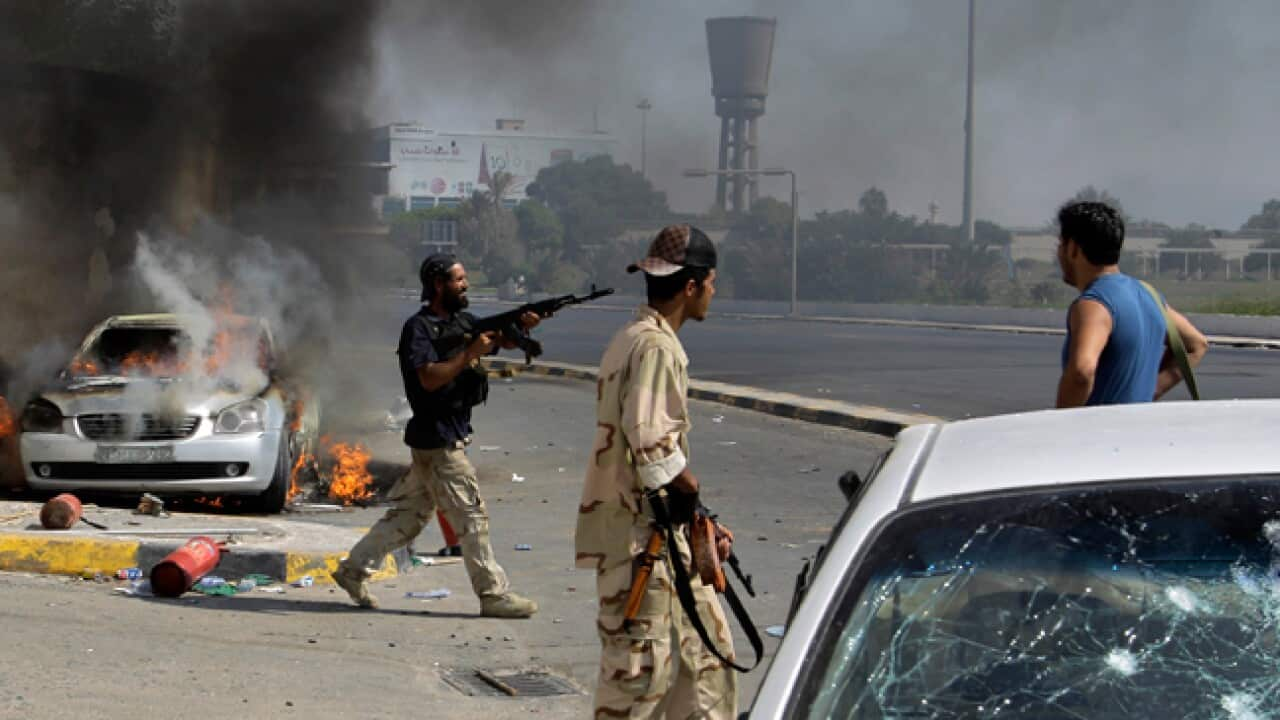"I do not rule out the presence of some extremist elements among the fighters, but you can't speak of Al-Qaeda-like groups like those operating in Afghanistan or Yemen," said the fighters' deputy chief, General Sliman Mahmud.
"In Libya, with its moderate society and solidarity, there's no risk of the emergence of extremist groups. In any case, the ballot boxes will have the final say," he told reporters.
Prominent among the rebel chiefs has been Abdelhakim Belhaj, whose fighters stormed Gaddafi's Bab al-Aziziya sprawling and fortified headquarters in the heart of Tripoli on August 23.
He went on Al-Jazeera television, which referred to him as a "sheikh," to claim credit for having driven the "tyrant Gaddafi" out of the capital.
According to France's Liberation newspaper, the rebel commander for Tripoli was a founder of the Libyan Islamic Fighting Group (LIFG), close to Al-Qaeda, and was arrested by the CIA before being handed over to Gaddafi in 2004.
Belhaj reportedly renounced violence while a prisoner and was released in March 2010, before joining this year's revolution.
His return to the front line raised concerns in some quarters that the revolt against Gaddafi, with the umbrella of NATO air power, might include undemocratic forces.
But a military spokesman for the revolt, Colonel Ahmed Omar Bani, denied the Liberation report.
"Abdelhakim Belhaj heads the Tripoli military council. He shares the same dream as all of Libya's revolutionaries, to build a democratic country," he told a news conference in the rebel bastion of Benghazi, in eastern Libya.
"We are moderate Muslims. Those who make out that terrorist and fundamentalist elements exist in Libya are not in touch with reality," the colonel said.
French President Nicolas Sarkozy's office on Wednesday defended the rebel commander, insisting Libya's revolution is not led by Islamists.
A senior official, on condition of anonymity, insisted France has no concerns about Belhaj or about the National Transitional Council (NTC), the rebel political body widely recognised as Libya's interim government.
"As it happens, the head of the president's military staff met him very recently and was able to form the personal opinion of him that does not correspond at all to the accusations against him," he told AFP in Paris.
"There is a very important distinction between practising Muslims and Islamists who want to lead a jihad," the Elysee source said, insisting that the NTC was neither infiltrated nor controlled by extremist elements.
"There may be cells but we are certain of one thing: they neither represent a threat nor a large slice of Libyan public opinion. We are not worried," he said.
When the Libya revolt erupted in March, Gaddafi and his son Seif al-Islam branded the rebels Al-Qaeda operatives, an allegation firmly denied by the NTC and its supporters, who have promised to form a broad-based government.
Like Al-Qaeda, the LIFG was formed by former Muslim volunteers who fought Soviet occupation forces in Afghanistan in the 1990s. Its members have fought in Iraq and Afghanistan.
Share

